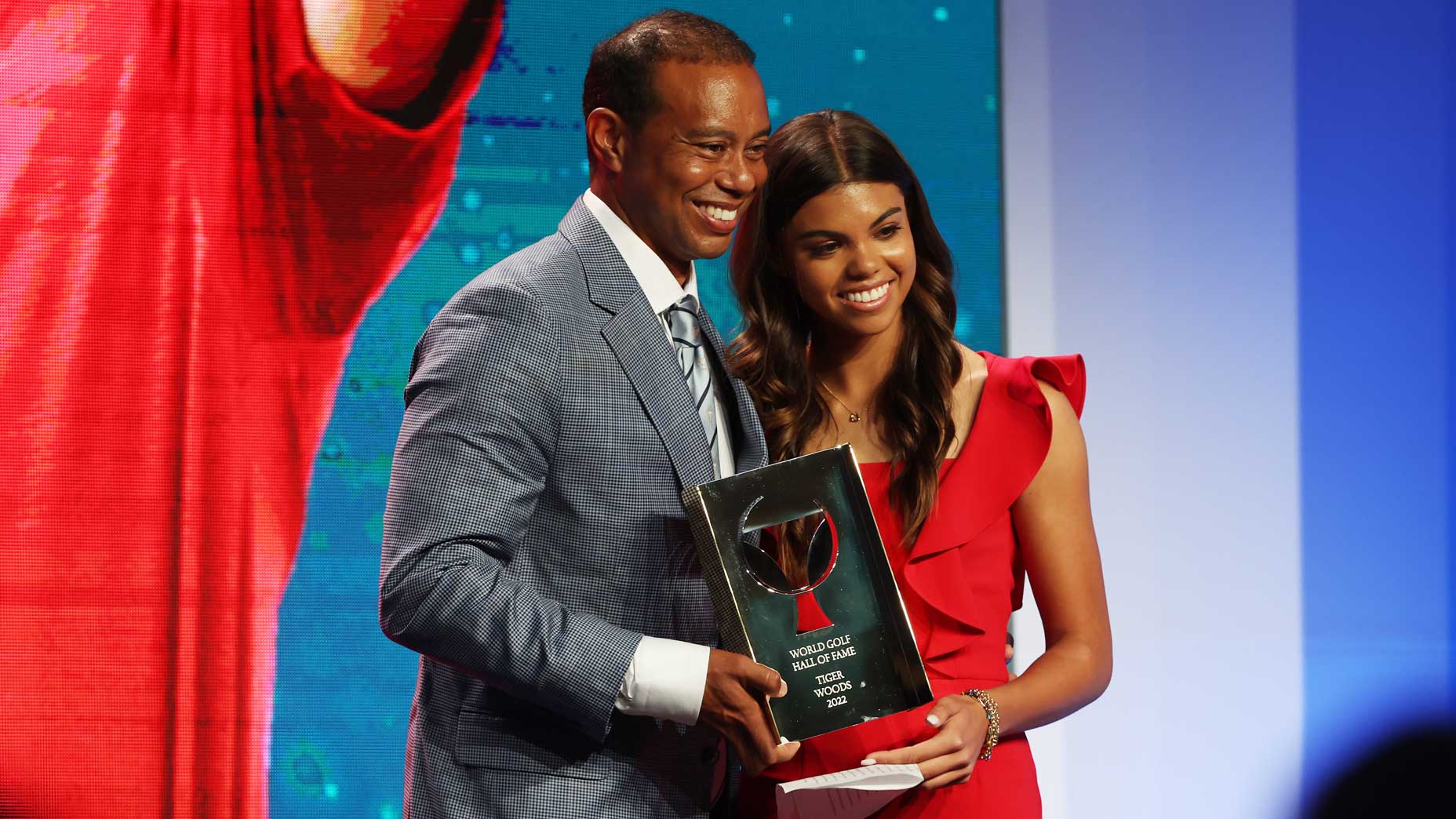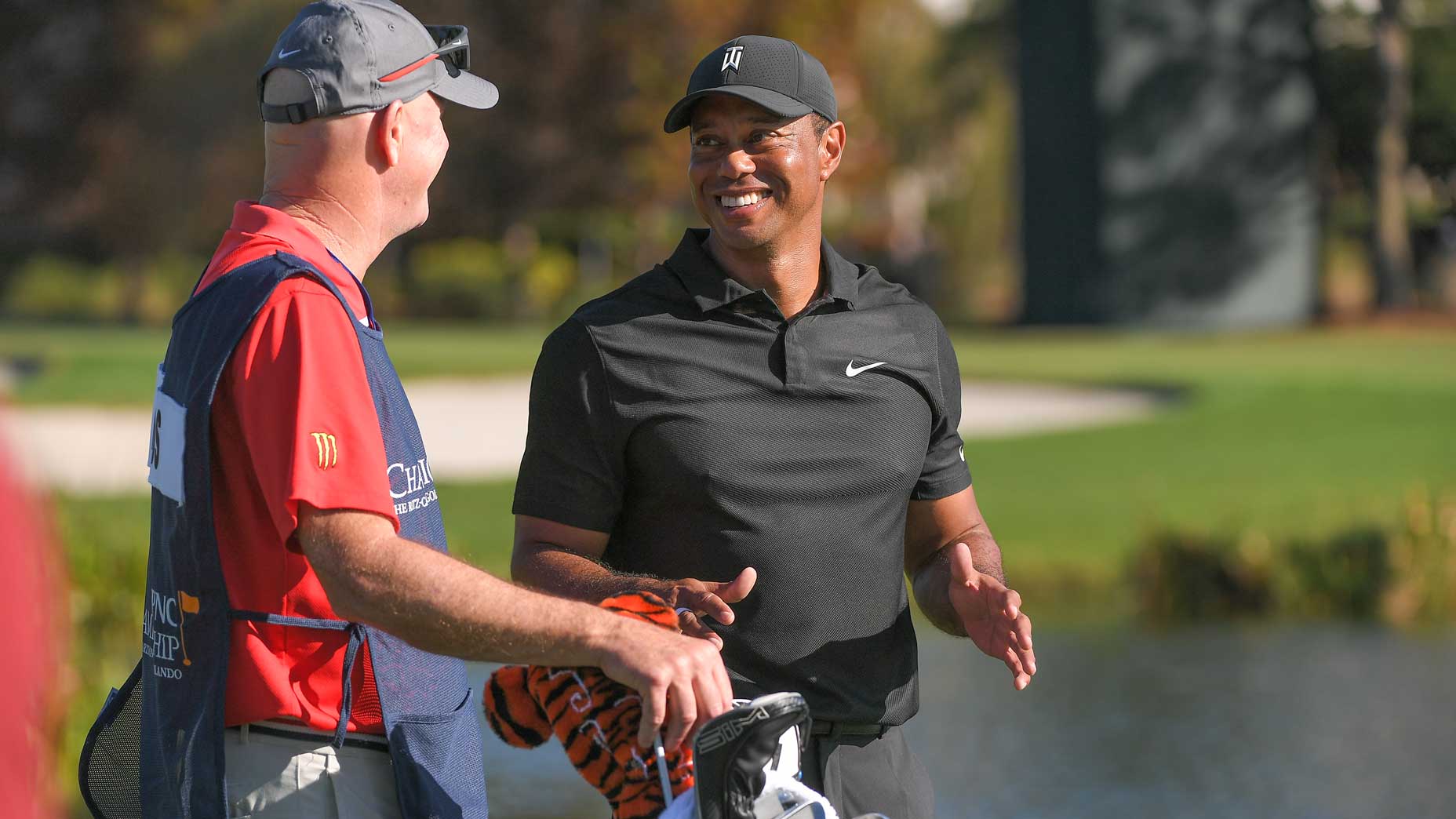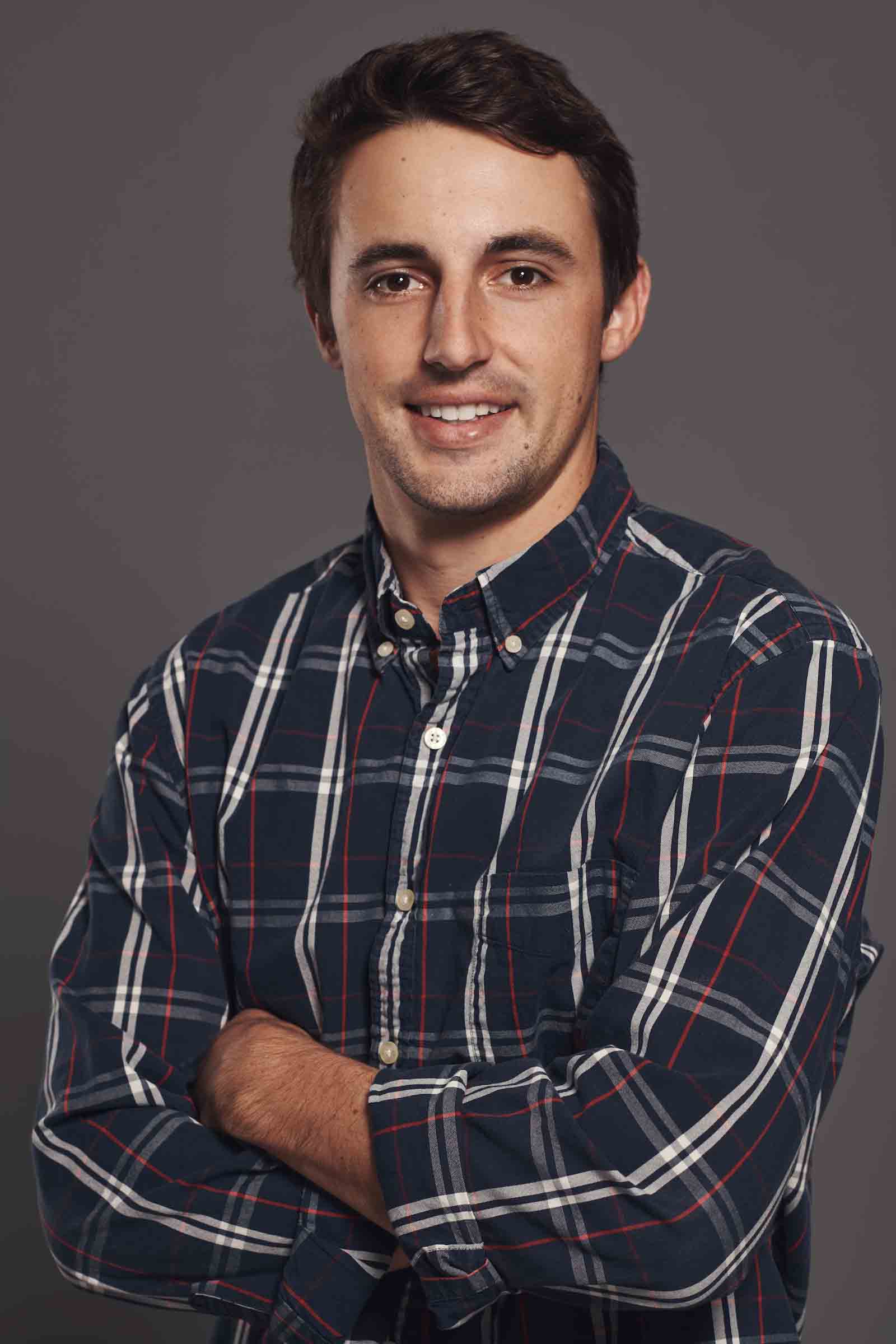
Tiger Woods and his daughter Sam were the stars of Wednesday night’s show.
Getty Images
PONTE VEDRA BEACH, Fla. — People have been writing about Tiger Woods nearly his entire life. On Wednesday, for the first time, we saw Woods writing about himself.
We knew Woods would be inducted on Wednesday evening into the World Golf Hall of Fame, a regimented affair in the palatial PGA Tour headquarters on the eve of its flagship tournament. But we didn’t know how he’d contextualize his own career. What tournaments would Woods highlight? Which victories? How deep would he dive into his major championship chase?
There’s a familiar set of competitive anecdotes to visit anytime you’re examining Woods’ mythology. The U.S. Ams. The ’97 Masters. The Tiger Slam. Torrey Pines in ’08. The scandal and injury. One comeback, and then the next, and then the next. The Tour Championship in ’18. The Masters in ’19. Pandemonium.
But when Woods took the mic his account didn’t go how you might expect. The tournaments he chose? Skins games from a par-3 course he played when he was 6. The victories he highlighted? Childhood putting contests for quarters. The majors? The claret jugs? The green jackets? He didn’t mention a single one.
“I was able to play all around the world, chase after my dreams and passions, and all the relationships I’ve been able to develop. I’ve had two amazing parents. I had amazing golf instructors, unbelievable caddies, friends that I’ve had for a lifetime,” Woods said.
That was the summation of his professional career. It was a far cry from the ruthless, goal-oriented verbiage we’ve heard from Woods all these decades. But in the twilight of his time on Tour, this was where his mind went. To old friends and big adventures.
Woods’ entire appearance was humanizing. The way he hugged his daughter Sam after she introduced him. The way his speech began with a story of chipping balls at a local park with his dog, Boom-Boom. The way he choked up and started to sob when he thanked his mother for her sacrifices on his behalf.
But Woods’ humanity was best showcased by Sam, 14, who also delivered the night’s best line.
“It’s been at the soccer fields and golf tournaments over the years that [her brother] Charlie and I have begun to realize how famous he actually is,” she said, cracking a smile. “I mean, how can a guy who still FaceTimes his friends to discuss Marvel and DC timelines and who goes to Comic-Con dressed as Batman be one of the greatest golfers that ever lived?”
Woods’ image is more closely guarded than arguably any athlete in history. His golfing reputation is immaculate. He’s the toast of the sport every night, but especially this night, with people like Serena Williams, Tom Brady, Jerry Rice and Michael Phelps — four of the greatest, coolest athletes in sport — all paying homage to his greatness. And here, on that same night, his daughter was outing him as a certified nerd. He roared with laughter.
But it was the line that preceded Sam’s Batman jab that said even more about how she sees her dad.
“His continual presence has been a significant pattern throughout our relationship,” she said. “Whether it’s on FaceTime or school pickup or violin concerts or when we fail to teach our dogs tricks, he’s always there.”
Think about that last bit. He’s always there. Professional golf is not a lifestyle conducive to present parenting. Woods has made it a priority. That’s an enduring part of his legacy.
It’s clear Woods thinks about parenting a lot these days. Perhaps that’s why he jumps so quickly to his own childhood; he’s searching for lessons. “I’ve had two unbelievable parents,” he said. He repeated a version of that refrain four times throughout the speech. Those parents, he said, allowed him to work his hardest. To maximize his potential. To learn that you get out of life what you put into it.
“Nothing’s ever going to be given to you, everything’s going to be earned,” Woods said. “If you don’t go out there and put in the work, you don’t go out and put in the effort, one, you’re not going to get the results, but two, and more importantly, you don’t deserve it. You need to earn it. So that defined my upbringing. That defined my career.”
If Wednesday night was Woods’ autobiography, the story he told — with Sam’s help — was relatively simple. He was a grateful son who loved golf and worked hard. He has gotten to travel the world. He has been able to make memories with friends and family, old and new. He didn’t have to include the in-between details; not the 82 PGA Tour wins nor the 15 major championships. He didn’t have to speak on his dominance at Firestone and Torrey and Bay Hill. We know those. The fact that he could see it, too — the big picture — was telling.
What’s interesting is that Woods didn’t literally write this story. He didn’t write anything, technically. Woods spoke with no notes. He spoke earnestly and from the heart. Sam did, too. And she told a story that reminded us of the day his priorities began to shift.
“In 2007 my dad found himself in a position to make an 18-foot putt to force a U.S. Open playoff, which he missed by a foot,” she said. “He then had to rush to the airport, fly from Pittsburgh to Orlando and drive to the Winnie Palmer Hospital. Within five minutes of walking into the hospital room, still wearing his red golf shirt, on June 18th, I was born. He may have lost that day, but he won the greatest gift of all.”
She was joking, but only sort of. The wins and not-wins have always mattered. But big picture, everything else has mattered more.
The golf itself still matters, of course. Woods was honored for his golfing career, and he hopes that career has chapters left.
That’s the best part of this story: It’s still without an ending.









